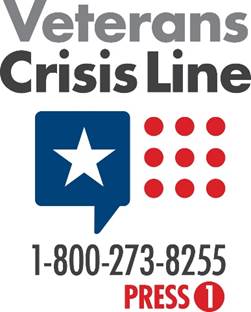Latest News
OhioMHAS Resources for Veterans

The Ohio Department of Mental Health and Addiction Services shared the following tips and resources for military service members and veterans in light of the continuing news from Afghanistan. This article was first published in OhioMHAS's NewsNow email earlier this week. Please do not hesitate to reach out to a friend, family member, counselor, or someone else who can be there to listen and offer you extra support when you need it. Below is the article and list of resources from OhioMHAS:
Military service members and veterans from all eras are reacting to the recent events in Afghanistan. Veterans may question the meaning of their service or whether it was worth the sacrifices they made. They may feel more moral distress about experiences they had during their service. You are not alone. It’s normal to feel this way. Talk with your friends and families, reach out to battle buddies, connect with a peer-to-peer network, or sign up for mental health services. Scroll down for a list common reactions and coping advice.
In reaction to current events in Afghanistan, Veterans may:
- Feel frustrated, sad, helpless, grief or distressed.
- Feel angry or betrayed.
- Experience an increase in mental health symptoms, like symptoms of PTSD or depression.
- Sleep poorly, drink more, or use more drugs.
- Try to avoid all reminders or media or shy away from social situations.
- Have more military and homecoming memories.
- Veterans may question the meaning of their service or whether it was worth the sacrifices they made. They may feel more moral distress about experiences they had during their service.
- Veterans may feel like they need to expect and/or prepare for the worst. For example, they may:
- Become overly protective, vigilant, and guarded;
- Become preoccupied by danger;
- Feel a need to avoid being shocked by, or unprepared for, what may happen in the future.
Feeling distress is a normal reaction to negative events, especially ones that feel personal. It can be helpful to let yourself feel those feelings rather than try to avoid them. Often, these feelings will naturally run their course. If they continue without easing up or if you feel overwhelmed by them, these general coping suggestions can be helpful:
- Engage in Positive Activities. Try to engage in positive, healthy, or meaningful activities, even if they are small, simple actions. Doing things that are rewarding, meaningful, or enjoyable, even if you don’t feel like it, can make you feel better.
- Stay Connected. Spend time with people who give you a sense of security, calm, or happiness, or those who best understand what you are going through.
- Practice Good Self Care. Look for positive coping strategies that help you manage your emotions. Listening to music, exercising, practicing breathing routines, spending time in nature or with animals, journaling, or reading inspirational text are some simple ways to help manage overwhelming or distressing emotions.
- Stick to Your Routines. It can be helpful to stick to a schedule for when you sleep, eat, work, and do other day-to-day activities.
- Limit Media Exposure. Limit how much news you take in if media coverage is increasing your distress.
- Use a mobile app. Consider one of VA’s self-help apps.
Additional resources:
- Afghanistan: How Veterans can reconcile service (VA Blog)
- Afghanistan: How Veterans can learn from Vietnam Veterans (VA Blog)
- Together We Served (VA Blog)
- Make the Connection (PTSD Resources)
- Military and Veteran Caregiver Network
- VA Mental Health Quick Start Guide (PDF)
- Star Behavioral Health Providers
- PTSD Coach App
- Rallypoint App
- Ohio Department of Veterans Services
- Veterans Crisis Line | 1.800.273.8255 Option 1
